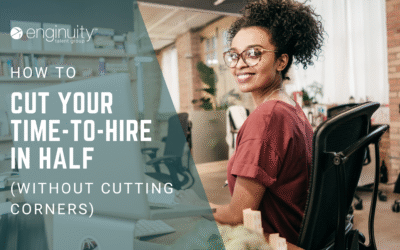The rise of anxiety among Generation Z (those born between 1997 and 2012) is a growing concern, particularly in the workplace. This younger generation is entering the workforce in a time of unprecedented uncertainty, and it’s taking a toll on their mental health.
Anxiety is not just a personal issue; it’s a productivity killer that’s pervading workplaces globally. One in three Americans are affected by anxiety at work, and globally, some 284 million people suffer from it, making it the world’s most common mental health issue. Combined with depression, it leads to missed work and lost productivity, costing the U.S. economy over $47 billion per year.
The tumultuous events of the last few years have only heightened this further. People bring their own anxieties to work, and then work makes them anxious. One of the most damaging ways anxiety can spill into the workplace is when people micromanage others. This behavior, born from anxiety, manifests as a need to control.
Anxiety and Its Impact on Managers
Dr. Sarah Bateup, a therapist and chief clinical officer at employee mental well-being platform Oliva, says that anxiety can cause us to behave in ways that jar with our values. For example, a manager might want to be a really good, helpful person, but if they feel anxious they can come across as overbearing.
Anxiety pushes us to behave in a way that isn’t helpful and usually means either overcompensating or avoiding doing something. This is particularly concerning as managers are often in charge of teams of people who are statistically more prone to anxiety: Gen Z.
The Impact of Anxiety on Gen Z
Gen Z is more likely than any previous generation to report mental health issues, with anxiety being a prevalent concern. This anxiety can manifest in various ways at work, including difficulty concentrating, decreased productivity, and increased absenteeism. Most (90%) Gen Zers say they feel nervous, anxious, and stressed at least some of the time, and 59% say they feel nervous, anxious, and stressed more than half of the time or all of the time. This is twice as high as Gen X (30%) and three times higher than Boomers (21%).
Part of this is due to the fact that younger generations entered the workforce either during or after the pandemic, and haven’t experienced in-office working culture. This “situational” anxiety at work can be crippling. For example, many Gen Zers feel anxious just saying hi at the start of a Zoom call.
The Impact of Anxiety on Creativity and Collaboration
Paula Allen, global leader and senior vp of research and total well-being at health tech provider Telus Health, agrees that anxiety holds people back at work. When you think about anxiety, it actually locks a part of your brain. You’re not able to be as creative or collaborative. You’re less likely to want to be with other people and you are also more sensitive to stress. All of these things are not helpful for the workplace.
With Gen Z experiencing such acute anxiety in particular, that can damage their creativity, ability to collaborate and connect, which could slow career growth.
Harnessing Anxiety Constructively
On the flip side, if harnessed constructively, anxiety can be a powerful growth tool, building leadership strengths like greater vision, empathy, and sensitivity. Data shows that anxious people process threats differently, using regions of the brain responsible for action. People who are anxious react quickly in the face of danger and may be accustomed to uncomfortable feelings. If managers could intentionally channel their anxiety in a thoughtful way, it could lead to more resourceful, productive, and creative teams.
Strategies to Support Gen Z’s Mental Health at Work
Open Communication
Encourage open dialogue about mental health in the workplace. This can help reduce the stigma associated with mental health issues and make Gen Z employees feel more comfortable seeking help when they need it.
Promoting open communication about mental health in the workplace involves more than just telling employees they can talk about it. It requires active efforts from both management and HR. Here are a few strategies:
- Lead by Example: Managers and leaders should set the tone by openly discussing their own experiences with stress and mental health. This can help to normalize these conversations and show Gen Z employees that it’s okay to talk about these issues.
- Provide Training: Provide training to managers and supervisors on how to have conversations about mental health. This can equip them with the skills and knowledge they need to handle these discussions sensitively and effectively.
- Create Safe Spaces: Create spaces where employees can talk about mental health comfortably. This could be through regular check-ins, team meetings, or dedicated mental health forums.
- Implement Policies: Develop and implement clear policies around mental health and communication. These policies should protect employees who speak up about their mental health from discrimination or retaliation.
Flexible Work Arrangements
Offering flexible work arrangements can help reduce anxiety.
Flexible work arrangements are becoming increasingly popular in today’s workplace, and for a good reason. They offer employees the opportunity to balance their work and personal life more effectively, leading to increased job satisfaction, productivity, and overall well-being. For Gen Z employees dealing with anxiety, flexible work arrangements can be particularly beneficial.
Encouraging Use of Employee Assistance Programs
As mental health becomes a bigger part of the conversation around employee well-being and corporate culture, it’s important to emphasize employee assistance programs (EAPs) and encourage people to take advantage of them. Even when EAPs are available, they’re typically underused by employees.
While EAPs may offer some of the same services available through health insurance, the information and care provided by an EAP are free to access. These programs can help employees address issues like substance abuse, relationship problems, financial challenges, family struggles, and mental health issues. Most importantly, EAPs are completely confidential, so employees have no fear of their personal life becoming entangled with their work.
Employees—particularly Gen-Z employees in their very first job—may not understand how an EAP works. So HR leaders and management should be proactive about discussing EAPs throughout the year, not just during onboarding. When recruiting new talent, businesses without these programs could consider adding one because they can be a major benefit.
Offering Mentorship Programs
Gen-Z professionals may feel lost or confused early in their career, which can contribute to poor mental health. In these moments, they may not know who to ask for advice regarding stress or anxiety about their future. For example, if they’ve moved to a new city to accept a position, they may struggle with feeling out of place socially as well.
Organizations can help alleviate these feelings by establishing mentorship or networking programs specifically for their Gen-Z talent. These programs will look unique for every organization, but they may include pairing each entry-level employee with a more experienced mentor or hosting networking happy hours to help Gen-Z employees get to know others within the organization. This can help build and strengthen their internal support system.
The Role of Managers in Addressing Anxiety
The first step is for individuals to identify when their anxiety spikes and what it might be connected to. Doing so might then mean a manager can then resist letting their anxiety spill into micromanaging. It’s really important, especially if you’re a manager, because your job as a manager is to help set up conditions for your teammates to thrive.
Being open and transparent about it could also be helpful. If a manager discloses that they suffer from it, or have even been clinically diagnosed with anxiety, it may help team members understand how to respond better as well. For example, they could check in to remind a manager they’re on track with their deliverables. And if an individual doesn’t feel comfortable sharing their struggle with anxiety, outlining their workflow could be beneficial for both parties.
How Can We Help
Anxiety is a significant issue for Gen Z in the workplace, but it’s not insurmountable. By fostering open communication, offering flexible work arrangements, and providing mental health resources, employers can help support Gen Z’s mental health and create a more positive and productive work environment. Managers, in particular, have a crucial role to play in this process. By acknowledging their own anxieties and working to manage them constructively, they can set a positive example for their teams and create a more supportive environment for everyone.
If you’re an employer looking to create a supportive and inclusive workplace for your Gen Z employees, consider partnering with Enginuity Advantage. We are experts in identifying, engaging, attracting, recruiting, and supporting the hire of THE RIGHT engineering talent for your business, including those of Gen Z. From start to finish, we do ALL the heavy lifting. Contact us today to learn more about how we can help your organization.



0 Comments